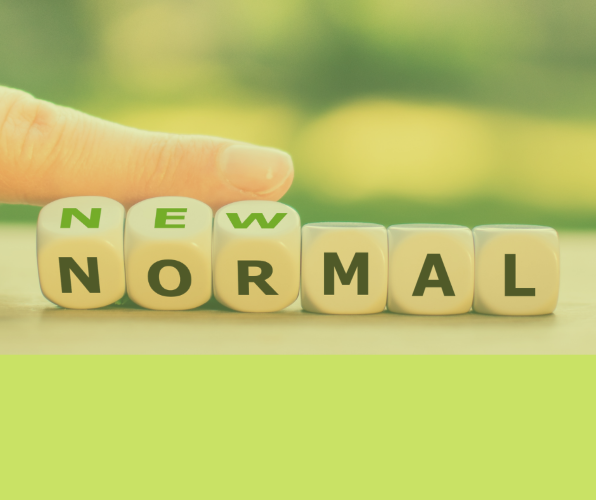Advice
Life After Covid-19 – finding a sense of normality
By: Lauren Hall
Updated: 01 July 2021

Covid-19 has been an unparalleled time in world history. For many when thinking about life after Covid, they talk about finding ‘the new normal’, but it’s hard to know what that even means. Covid made many of us assess our lives in a way that we haven’t before. Examining the way we work, socialise and experience our daily lives. For many it meant everything was impacted and their lives were turned upside down. So how does one even begin to get back to how it was?
The answer will be different for everyone, but for many it is simply that there is no going back completely. For some, the changes that they’ve undertaken during this challenging time will forever adjust the way they live – both positive and negative. Perhaps working from home has become the new normal for those who never would have considered it before. Moving out of big cities to find a little peace and space among smaller towns. Relationships that ended or started because of lockdowns and of course, the loved ones that we’ve lost. These changes to our lives, the big and small, can feel like a loss in itself and can be hard to accept. The feeling that we’ve lost our ‘normal’ lives is daunting, and like any loss it’s common to experience many emotions, including shock, anger and sadness. The first step to finding ‘normality’ after Covid-19 is by seeking acceptance of it. This takes time and patience with yourself and others. It is normal to mourn what was lost, the key is to do so in a healthy way that allows us to have a balanced view of the past and open ourselves to new beginnings.
It’s important to remember that everyone has had vastly different experiences of Covid-19 and lockdown. For some finding a sense of normality and acceptance will come more easily than others. Some will have grown to enjoy a few of the changes and will want to incorporate them into their new lives, whether it’s wearing masks in public or a new career, each will slowly begin to balance the old way of life with the changes that came with the last year. If you’ve found a ‘new normal’ for yourself without much difficulty that is great, just be mindful that some friends and families may not be there yet and may need more time to figure out and adjust to life after Covid-19.
For others, it will take longer to accept how different life is and the key here is to be patient with yourself. Be mindful that you may have experienced an extraordinarily difficult year and it will take time to feel like life is returning to a sense of normality. Reminding yourself of the beauty of the present moment in order to avoid becoming too overly reminiscent about the past will also help you adjust more easily. Rest assured, many parts will slowly return to how they once were – meeting friends in restaurants will be normal again, visiting family overseas and big wedding celebrations. Slowly life will begin to feel, in many ways, exactly as it was just a few years ago. There will be a collective sigh of relief as we ease back into the joys of ordinary life. But perhaps that is where one of the biggest differences of ‘the new normal’ will show, our gratitude for the most ordinary things which we had previously taken for granted.
After such a tragic and unprecedented time in recent human history, remember it is okay to not feel ‘normal’ yet, be kind to yourself and others as we navigate through this period of adjustment. Journaling your experience, grounding techniques and counselling can help if you are feeling overwhelmed by this transition and the changes involved. The ‘new normal’ will be different for each person but with small steps and patience we will all find it and relish it more than ever before.
MENTAL HEALTH PROFESSIONALS WORKING WITH Depression ISSUES:
Approach: Mindfulness , Person-Centred Therapy , Somatic Experiencing , Internal Family Systems , Other
Works with: Individual Session
Specialities: Anger , Anxiety , Bereavement / Loss , Depression , Eating Disorder / Body Image , Fertility , Isolation / Loneliness , Personal Development , Relationship issues , Self-Esteem , Stress , Trauma , Work Issues, Work/Life balance
Next avaialble appointment: 10:00 24 February 2025
Approach: Humanistic & Integrative Psychotherapy , Cognitive Behavioural Therapy (CBT) , Person-Centred Therapy , Psychodynamic Therapy
Works with: Individual Session
Specialities: Anger , Anxiety , Bereavement / Loss , Depression , Eating Disorder / Body Image , Isolation / Loneliness , Obsessive Compulsive Disorder , Personal Development , Relationship issues , Self Care , Self-Esteem , Stress , Trauma , Work Issues, Work/Life balance
Next avaialble appointment: 8:00 24 February 2025
Approach: Person-Centred Therapy , Creative Art Therapy
Works with: Individual Session , Children & Adolescents
Specialities: Addiction , Anger , Anxiety , Bereavement / Loss , Bullying , Chronic Illness , Depression , Domestic Violence / Abuse , Isolation / Loneliness , LGBT , Neurodiversity , Personal Development , Relationship issues , Self Care , Self-Esteem , Stress , Trauma , Work Issues, Work/Life balance
Next avaialble appointment: 11:00 24 February 2025
Search
Get The Support You Need
From One Of Our Counselors
News
Isolation
Anxiety
Depression
Relationship Issues
Counselling
Personality Disorder
Addiction
Trauma
Children and Adolescent
Anger
Bereavement
Chronic Illness
Communication Issues
Eating Disorder
Post natal depression
Stress
LGBTQI+
Panic Attack
OCD
Resilience
Parental support
Men's Mental Health
Category List
All Posts
News
Isolation
Anxiety
Depression
Relationship Issues
Counselling
Personality Disorder
Addiction
Trauma
Children and Adolescent
Anger
Bereavement
Chronic Illness
Communication Issues
Eating Disorder
Post natal depression
Stress
LGBTQI+
Panic Attack
OCD
Resilience
Parental support
Men's Mental Health

